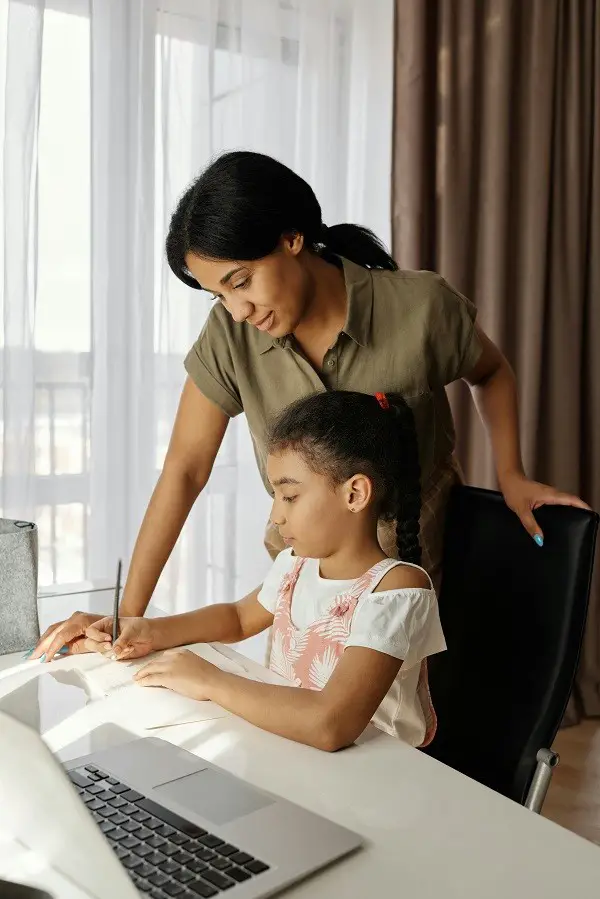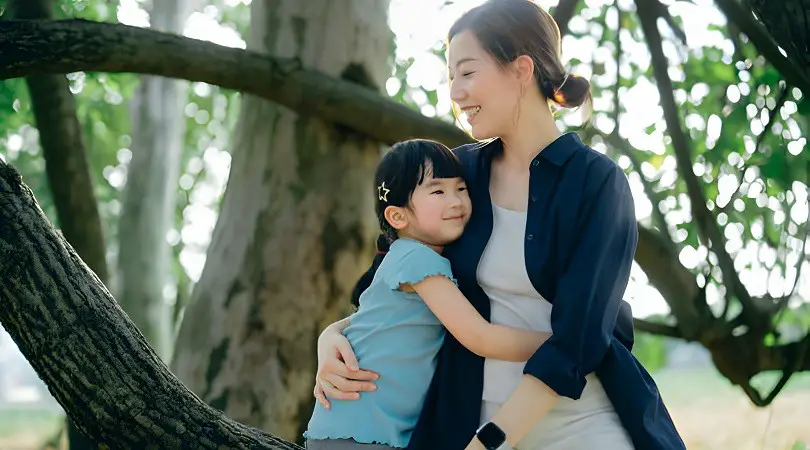Last Updated on January 6, 2025
To encourage positive relationships between your children, create opportunities for them to bond through shared activities and experiences. Encourage open communication and teach them problem-solving skills to navigate any conflicts.
Encouraging positive relationships among your children is crucial for their emotional and social development. By fostering a supportive and nurturing environment, you can help them build strong bonds that will last into adulthood. We will explore effective strategies for promoting harmony and cooperation among siblings.
Whether they are playing together, working on a project, or resolving conflicts, there are numerous ways to nurture positive relationships between your children. These tips will not only strengthen their bond but also contribute to their overall happiness and well-being.

Setting A Positive Example
Encouraging positive relationships between your children starts with setting a positive example. Model kindness, empathy, and good communication to guide your children in developing healthy interactions with each other. Your behavior serves as a powerful influence on how your children interact with each other, creating a positive family dynamic.
Being a role model for your kids is essential in fostering positive relationships among them.
Being A Role Model
Show your children how to interact with kindness and respect towards others.
Promoting Healthy Communication
Encourage open discussions where each child feels heard and valued.
Teaching Conflict Resolution
Conflict is a natural part of any relationship, and children must learn how to handle disagreements and conflicts positively and constructively. By equipping them with the necessary skills to navigate conflicts, you can encourage positive relationships between your children and foster their emotional intelligence. Teaching conflict resolution involves fostering empathy and problem-solving skills, which are essential tools for effective communication and collaborative problem-solving. Here are some strategies to help you teach your children conflict resolution:
Encouraging Empathy
Empathy is the ability to understand and share the feelings of others. It plays a vital role in conflict resolution as it helps children view situations from someone else’s perspective and understand their emotions. Here’s how you can encourage empathy:
- Lead by example: Show empathy towards your children when they’re experiencing difficult emotions or conflicts.
- Encourage active listening: Teach your children to listen attentively without interrupting and to ask questions to understand others’ feelings.
- Practice perspective-taking: Engage your children in activities that require them to see things from different viewpoints, such as role-playing or storytelling.
- Highlight similarities: Emphasize the common interests and shared experiences between your children to promote understanding and empathy.
Problem-solving Skills
Equipping children with problem-solving skills empowers them to work collaboratively and come up with solutions that benefit everyone involved. Here are some strategies to help develop problem-solving skills:
- Teach active listening: Encourage your children to listen attentively to others’ perspectives and ideas to gain a better understanding of the problem.
- Promote brainstorming: Encourage your children to come up with multiple solutions to a problem, focusing on quantity instead of quality at this stage.
- Help evaluate options: Guide your children in evaluating the pros and cons of each solution and their potential impact on everyone involved.
- Encourage compromise: Teach your children the importance of finding a middle ground and compromising to reach a resolution that satisfies all parties.
- Reinforce positive communication: Emphasize the importance of using respectful and constructive language when discussing problems.
By teaching conflict resolution, you are providing your children with valuable life skills that will benefit them in their personal relationships and future endeavors. Implement these strategies consistently, and watch your children develop into resilient problem-solvers with the ability to maintain positive relationships.
Creating A Supportive Environment
Creating a supportive environment is crucial for encouraging positive relationships between your children. When your children feel supported and safe at home, they are more likely to develop strong bonds with each other. In this section, we will explore two key aspects of creating a supportive environment: fostering trust and showing unconditional love.
Fostering Trust
Trust is the foundation of any healthy relationship, and it is especially important between siblings. When siblings trust each other, they are more likely to communicate openly, share their thoughts and feelings, and support one another. Here are some strategies to foster trust between your children:
- Promote open communication: Encourage your children to express themselves openly and respectfully. Create a safe space where they can share their thoughts and feelings without fear of judgment.
- Listen actively: When your children talk to you, give them your full attention. Show that you value their opinions and ideas by actively listening and responding thoughtfully.
- Respect boundaries: Teach your children to respect each other’s personal space and belongings. Help them understand the importance of consent and boundaries in building trust.
- Encourage cooperation: Foster a sense of teamwork by encouraging your children to work together on projects and problem-solving activities. This will help them develop trust in each other’s abilities.
Showing Unconditional Love
Unconditional love is a powerful force that can strengthen the bond between siblings. When children feel loved unconditionally, they are more likely to develop empathy, compassion, and a sense of security. Here are some ways you can demonstrate unconditional love:
- Show affection: Hug, kiss, and cuddle your children regularly. Physical touch can be a powerful way to express love and affection.
- Practice active appreciation: Acknowledge and celebrate your children’s achievements and strengths. Let them know that you love and appreciate them for who they are.
- Avoid comparison: Refrain from comparing your children to each other. Each child is unique and deserves to be loved and valued for their qualities.
- Be understanding: Empathize with your children’s struggles and emotions. Show them that you are there for them, no matter what.
Encouraging Individuality
Encouraging individuality in children is crucial for fostering positive relationships between siblings.
Respecting Differences
- Acknowledge each child’s unique traits.
- Teach them to appreciate what makes them different.
- Encourage them to embrace diversity in others.
Celebrating Achievements
- Recognize and praise each child’s accomplishments.
- Create a supportive environment for sharing successes.
- Help them set and achieve personal goals.

Setting Realistic Expectations
When it comes to promoting positive relationships between your children, setting realistic expectations plays a key role. It is essential to establish an environment that encourages cooperation while avoiding unhealthy comparisons between siblings.
Promoting Cooperation
Encouraging cooperation among siblings involves establishing a system that promotes mutual respect and understanding. This can be achieved by setting up clear guidelines for sharing, taking turns, and resolving conflicts peacefully. Additionally, setting achievable goals and allowing children to participate in decision-making can help create a sense of teamwork and collaboration.
Avoiding Sibling Comparison
Avoiding sibling comparison requires a conscious effort to focus on the unique strengths and abilities of each child. It is important to celebrate individual achievements and refrain from pitting siblings against each other. By acknowledging and embracing the differences between siblings, parents can help cultivate a supportive and nurturing environment that fosters healthy relationships.
Frequently Asked Questions
How Can I Teach My Children To Communicate Effectively?
To teach effective communication, encourage active listening, use positive language, and practice respectful conversation.
What Can I Do To Foster A Sense Of Cooperation Among My Children?
Foster cooperation by promoting teamwork, setting clear expectations, and encouraging problem-solving together.
What Strategies Can I Use To Prevent Sibling Rivalry?
Prevent sibling rivalry by spending quality time with each child individually, setting boundaries, and acknowledging their unique strengths.
How Can I Promote A Positive Sibling Bond?
Promote a positive sibling bond by encouraging shared experiences, facilitating sibling playtime, and teaching conflict resolution skills.
How Do I Handle Conflicts Between My Children?
Handle conflicts by allowing each child to express their feelings, mediating peacefully, and encouraging empathy and understanding.
Conclusion
Fostering positive relationships among your children is essential for their emotional development. By creating a supportive environment, setting clear expectations, and promoting communication, you can strengthen sibling bonds. Encouraging empathy and conflict resolution skills will help nurture healthy connections that last a lifetime.
Prioritize nurturing these connections daily.








